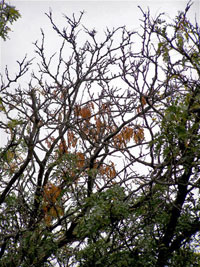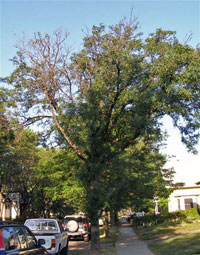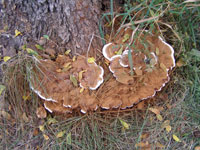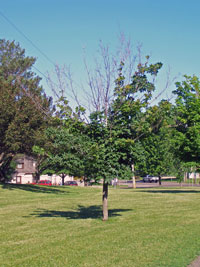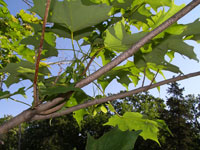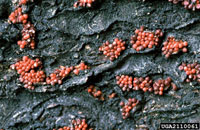Extension > Garden > Diagnose a problem > What's wrong with my plant? > Deciduous Trees > Honeylocust > Leaves yellow and wilt
Honeylocust > Leaves > Leaves yellow and wilt
1 of 2
Ganoderma root and butt rot
Ganoderma spp.
- Leaves are smaller in size and turn yellow earlier than normal
- Canopy appears thin with few leaves and multiple dead branches
- Fungal conks, a semicircle shelf fungi, can be found from the base of the tree up to 3 feet high on the trunk
- Conks are reddish brown and shiny on top, white and porous underneath, a rim of white may be visible on the edge of growing conks
- Infected wood at the base of the tree is white, soft, stringy or spongy
- Infected trees frequently break or fall over in storms
- More information on Ganoderma root and butt rot
2 of 2
Coral spot canker
Nectria cinnabarina
- Dead branches and twigs, often first observed in early spring when no leaves form
- Or, wilting soon after leaves emerge in spring
- Sunken dark brown area on branch that is often cracked or has a ridge at the edge
- Raised cushion-like bumps on affected branches, may be cream to orange or red, turn black with age
- Common on trees stressed by drought, recent transplant or other factors
- More information on canker



